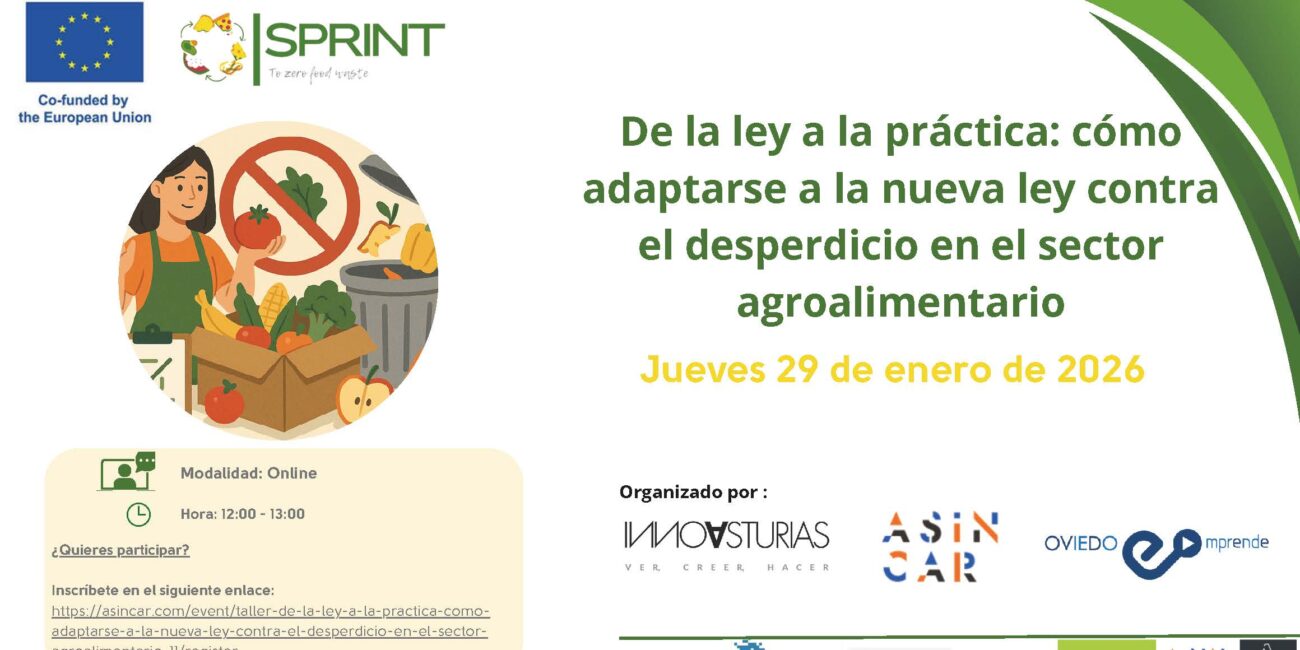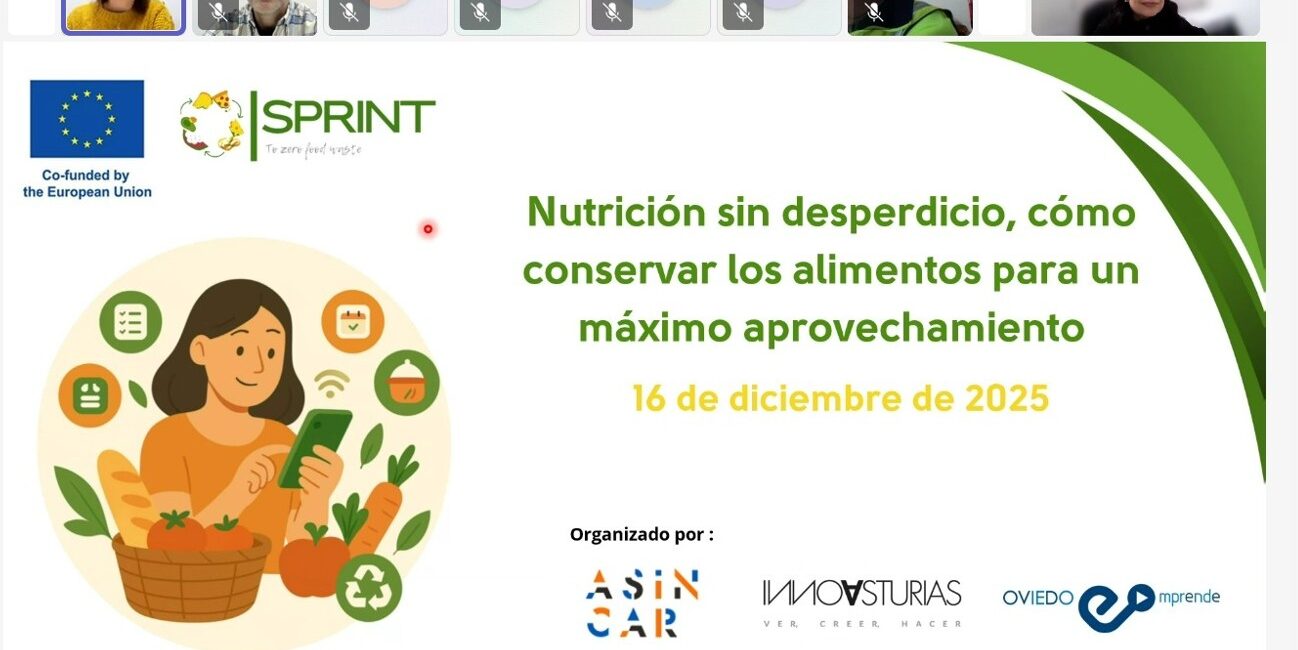what is sprint
The project
of global greenhouse gas emissions Are foods that are produced but not consumed
of tons of food are wasted every year
of euros wasted
About the project
SPRINT is an EU-funded project that aims to reduce consumer food waste through evidence-based strategies.
These strategies aim to improve economic, social and environmental performance, by combining technological tools with actions that change the choices available to consumers.
The project will use a multi-stakeholder approach to analyse, co-create, implement and evaluate interventions in three pilot contexts: hotel restaurants, supermarkets and households in Spain.
In addition, SPRNT will promote collaboration and develop educational resources to facilitate food waste reduction contributing to the formulation of efficient public policies and ensuring long-term sustainability.
Half of waste by 2030
Food waste by consumers constitutes a significant part of the total waste along the food value chain. Food that is produced but not consumed accounts for approximately 8% and 10% of global greenhouse gas emissions..
In addition, this waste contributes to the depletion of finite resources such as land and water, resulting in the pollution of soils and water bodies due to intensive agricultural practices. Preventing and reducing food waste is therefore an essential component of the United Nations Sustainable Development Goals (SDGs), in particular SDG 12 Target 12.3, which aims to halve global food waste per capita by 2030.
Objective 1: Diagnosis of food waste
To establish a holistic view of the drivers, motivations and food behaviours that facilitate or hinder consumers and food service providers to reduce and prevent food waste, with special emphasis on studying behaviours in our three different settings: hotel restaurants, supermarkets and households.
Objective 2: Co-creation and design of interventions
To create, in collaboration with stakeholders, evidence-based intervention strategies selected as pilot cases with the aim of reducing food waste by consumers. It also involves the development of technological solutions.
Objective 3: Implementation of solutions
Involve stakeholders, workers, consumers and households in the three study contexts in the three autonomous communities (Barcelona, Asturias and Madrid).
Objective 4: Impact evaluation and monitoring
Impact will be measured by quantifying the reduction of food waste achieved through the implementation of the strategies and assessing the change in user behaviour. In addition, the environmental and economic impacts of the implemented strategies will be analysed.
Objective 5: Awareness raising and advocacy
Effectively manage the scaling up of project results by developing policy recommendations and operational guidelines on how to prevent/reduce food waste, and undertake appropriate dissemination and communication actions to maximise project impacts.
For sustainable policies
SPRINT aims to deepen understanding of the importance of reducing food waste and to develop effective strategies to achieve this. To this end, educational resources will be created based on previous and new research conducted within the framework of the project. In addition, multi-stakeholder collaboration will be promoted to overcome barriers and implement innovative practices in food waste reduction.
SPRINT aims to contribute to accelerate the formulation of efficient strategies and public policies for the reduction of food waste, to collaborate with similar initiatives and to offer tools that facilitate the replication of the project results, ensuring their long-term sustainability.
- Gestionar tu despensa de forma sencilla.
- Recibir avisos antes de que los alimentos caduquen.
- Obtener recetas para aprovechar lo que tienes.
- Aprender trucos para conservar mejor tus alimentos






